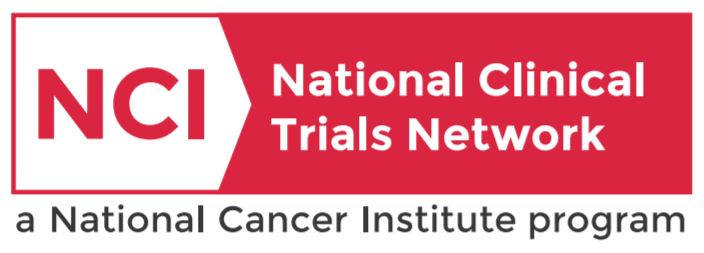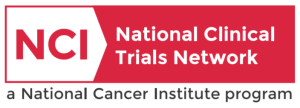
AHOD0831 | Combination Chemotherapy and Radiation Therapy in Treating Young Patients With Newly Diagnosed Hodgkin Lymphoma
DOI: 10.7937/CV5M-1H59 | Data Citation Required | 520 Views | Image Collection
| Location | Species | Subjects | Data Types | Cancer Types | Size | Status | Updated | |
|---|---|---|---|---|---|---|---|---|
| Various | Human | 165 | CT, PT, MR, NM, CR, DX, SC, XA, OT | Hodgkin Lymphoma | Clinical | Limited, Complete | 2022/06/08 |
Summary

Demographic Summary of Available Imaging
| Characteristic | Value (N = 165) |
|---|---|
| Age (years) | Mean ± SD: 14.9 ± 3 Median (IQR): 15.8 (13.2-17.0) Range: 5.2-21.4 |
| Sex | Male: 101 (61%) Female: 64 (39%) |
| Race | White: 111 (67%) |
| Ethnicity | Hispanic: 33 (20%) |
This collection contains data from the Children’s Oncology Group (COG) Clinical Trial NCT01026220, “Combination Chemotherapy and Radiation Therapy in Treating Young Patients With Newly Diagnosed Hodgkin Lymphoma". Principal Investigator: Kara Kelly, MD (pediatric oncologist and the Chair of Roswell Park Oishei Children’s Cancer and Blood Disorders Program, Buffalo, NY). It was sponsored by NCI and performed by the Children's Oncology Group under study number AHOD0831. This phase III trial is studying how well giving combination chemotherapy together with radiation therapy works in treating young patients with newly diagnosed Hodgkin lymphoma. Therapeutic agents used on trial include 1 or more of the following: Biological: bleomycin sulfate; Drug: doxorubicin hydrochloride; Drug: liposomal vincristine sulfate; Drug: vinorelbine tartrate; Drug: cyclophosphamide; Drug: etoposide phosphate; Drug: prednisone; Biological: filgrastimDrug: ifosfamide. Select patient-level clinical data from this trial is available via the following link: https://nctn-data-archive.nci.nih.gov/node/1137.
Trial Primary Objective:
I. To maintain the overall survival (as defined by 4-year "second-event" free survival) for subjects with high risk Hodgkin lymphoma at or above 95%.
Trial Secondary Objectives:
I. To maintain 3-year event-free survival for subjects with high risk Hodgkin lymphoma at or above 93%.
II. To maintain comparable overall survival (as defined by 4-year "second-event" free survival) between subjects with high risk Hodgkin lymphoma who have a rapid or slow response to the initial 2 cycles of ABVE-PC* by intensifying therapy through the addition of 2 cycles of ifosfamide/vinorelbine in those with a slow early response.
III. To investigate whether very early response assessment measured by FDG-PET after 1 cycle of chemotherapy identifies a subject cohort that can be studied in future trials and that is distinguishable from currently defined RER after 2 cycles.
IV. To describe the patterns of relapse after ABVE-PC* and risk-adapted radiotherapy.
Trial Description and Outcomes
The AHOD0831 study for pediatric patients with high risk Hodgkin lymphoma tested a response-based approach designed to limit cumulative alkylator exposure and reduce radiation volumes. 166 patients were enrolled in this study from December 2009 to January 2012, of whom 165 were eligible and 141 completed the trial. This dataset contains the images from the 165 eligible patients. Study dates were approximately 2009-2017.
Patients (Stage IIIB/IVB) received two cycles of ABVE-PC (doxorubicin, bleomycin, vincristine, etoposide, prednisone, cyclophosphamide). Rapid early responders [RER, no positron emission tomography (PET) activity above mediastinal blood pool] were consolidated with 2 cycles of ABVE-PC. Slow early responders(SER) received 2 cycles of ifosfamide/vinorelbine and 2 cycles of ABVE-PC.
Radiotherapy was administered to sites of initial bulk and/or SER. By intent-to-treat analysis, 4-year second event-free survival (EFS; freedom from second relapse or malignancy) was 91.9% [95% confidence interval(CI): 86.1 – 95.3%], below the projected baseline of 95% (P = 0.038). Five-year first EFS and overall survival (OS) rates are 79.1% (95% CI: 71.5 –84.8%) and 95% (95% CI: 88.8 – 97.8%). Eight of 11 SER patients with persistent PET positive lesions at the end of chemotherapy had clinical evidence of active disease (3 biopsy-proven, 5 with progressive disease or later relapses). Although this response-directed approach did not reach the ambitiously high pre-specified target for second EFS, EFS and OS rates are comparable with results of recent trials despite the reduction in radiotherapy volumes from historical involved fields. Persistent PET at end of chemotherapy identifies a cohort at an especially high risk for relapse/early progression.
Trial Publication
Results of the trial have been reported in the following publication:
- Kelly KM, Cole PD, Pei Q, Bush R, Roberts KB, Hodgson DC, McCarten KM, Cho SY, Schwartz C. Response-adapted therapy for the treatment of children with newly diagnosed high risk Hodgkin lymphoma (AHOD0831): a report from the Children's Oncology Group. Br J Haematol. 2019 Oct;187(1):39-48. doi: 10.1111/bjh.16014. Epub 2019 Jun 10. PMID: 31180135; PMCID: PMC6857800.
Data Access
This is a limited access data set. To request access please register an account on the NCTN Data Archive. After logging in, use the “Request Data” link in the left side menu. Follow the on screen instructions, and enter NCT01026220 when asked which trial you want to request. In step 2 of the Create Request form, be sure to select “Imaging Data Requested”. Please contact NCINCTNDataArchive@mail.nih.gov for any questions about access requests.
Version 1: Updated 2022/06/08
| Title | Data Type | Format | Access Points | Subjects | License | Metadata | |||
|---|---|---|---|---|---|---|---|---|---|
| Images | CT, PT, MR, NM, CR, DX, SC, XA, OT | DICOM | Download requires NBIA Data Retriever |
165 | 1,650 | 8,231 | 1,097,774 | NCTN/NCORP Data Archive License (Without Collaborative Agreement) | View |
Additional Resources for this Dataset
The National Cancer Institute (NCI) has created a centralized, controlled-access database, called the NCTN/NCORP Data Archive, for storing and sharing datasets generated from clinical trials of the National Clinical Trials Network (NCTN) and the NCI Community Oncology Research Program (NCORP). Clinical data from the participants in this trial can be found at:
Citations & Data Usage Policy
Data Citation Required: Users must abide by the TCIA Data Usage Policy and Restrictions. Attribution must include the following citation, including the Digital Object Identifier:
Data Citation |
|
|
Kelly, K. M., Cole, P. D., Pei, Q., Bush, R., Roberts, K. B., Hodgson, D. C., McCarten, K. M., Cho, S. Y., & Schwartz, C. (2022). Combination Chemotherapy and Radiation Therapy in Treating Young Patients With Newly Diagnosed Hodgkin Lymphoma (AHOD0831) (Version 1) [Data set]. The Cancer Imaging Archive. https://doi.org/10.7937/CV5M-1H59 |
Detailed Description
De-identification of DICOM dates
De-identification of dates for this dataset uses the DICOM Part 3.15 Annex E standard “Retain Longitudinal With Modified Dates Option” which allows dates to be retained as long as they are modified from the original date. TCIA implements this using a technique which de-identifies the dates while preserving the longitudinal relationship between them. Original dates will be first normalized to 01 January, 1960 and then offset relative to the date of registration for each patient. This normalized date system was chosen in order to make it obvious that the dates are not real, and to make it easy to quickly determine how much time has passed between the date of registration and the patients’ related imaging studies.
For example, if the real date of a patient’s registration was 03/27/2018 and the original imaging Study Date was 03/29/2018 then the “Days from registration” would be +2 and the anonymized TCIA Study Date would become 01/03/1960.
Insertion of computed “REGISTRATION”/Days offset from registration” value
In addition to modifying the actual date fields in the DICOM header, the “days from registration” values are calculated and stored in the DICOM tag (0012,0052) Longitudinal Temporal Offset from Event with the associated tag (0012,0053) Longitudinal Temporal Event Type set to “REGISTRATION”.
Note: If these DICOM tags are not present, DICOM tag (0012,0050) Clinical Trial Time Point ID with the associated tag (0012,0051) Clinical Trial Time Point Description provides this same information. This inconsistency is due to a change in how dates were handled in the first NCTN trials that were published on TCIA.
Related Publications
Publications by the Dataset Authors
The authors recommended the following as the best source of additional information about this dataset:
Publication Citation |
|
|
Kelly, K. M., Cole, P. D., Pei, Q., Bush, R., Roberts, K. B., Hodgson, D. C., McCarten, K. M., Cho, S. Y., & Schwartz, C. (2019). Response‐adapted therapy for the treatment of children with newly diagnosed high risk Hodgkin lymphoma (AHOD0831): a report from the Children’s Oncology Group. In British Journal of Haematology (Vol. 187, Issue 1, pp. 39–48). Wiley. https://doi.org/10.1111/bjh.16014 |
No other publications were recommended by dataset authors.
Research Community Publications
TCIA maintains a list of publications that leveraged this dataset. If you have a manuscript you’d like to add please contact TCIA’s Helpdesk.
